CONCUSSIONS
Concussions
Concussions
Concussions are often misunderstood even though a very serious injury that could impact careers and daily life. Some of the symptoms can be
- Headache
- Loss of consciousness
- Confusion
- Amnesia
- Dizziness
- Ringing in the ears
- Loss of balance or coordination
- Nausea
- Vomiting
- Slurred speech
- Fatigue
- Irritability or mood swings
- Sleep disturbances
- Sensitivity to light
- Changes in taste or smell
A concussion is a traumatic brain injury and does impact the brain functions and abilities, it can occur when the brain moves within the skull as a result of an impact either directly or indirectly. As a result of a blow to the head, or by shaking the head too hard, example could be during whiplash. It could sometimes result in unconsciousness and sometimes it doesn’t, and having a concussion may not always as obvious as hitting the head and getting a headache or losing consciousness but be as a result of a bad fall in which the head hits the ground/floor awkwardly, or shake your head too hard for any reason, and begin to feel a little off. When playing a contact sport, for example, patients could sustain a concussion from a hit to the head, or a hit to the stomach. It all depends on the movement of the brain inside the skull.
Since something as ordinary as a fall or sudden movement can cause your brain to move within your skull, you may sustain a concussion and not realize it. Don’t ignore any new signs or symptoms you feel after an event that involves your head.
What should you do when you think you have a concussion?
If you suspect that you, or someone you know, may have sustained a concussion, contact your family doctor or a health-care provider right away. Concussions should be diagnosed by trained health-care professionals. They are your best resource for treatment going forward.
What should you do when recovering from a concussion?
Everyone recovers from a concussion differently. Some symptoms may last only for a week to ten days, while other scan continue for much longer, especially if you don’t give yourself enough time to recover. All concussion patients should be monitored by a health-care provider. The best thing you can contribute to your recovery is patience.
What if your symptoms persist?
In some cases, patients can experience symptoms of a concussion beyond a few days or weeks. Persistent concussion symptoms can be more challenging to manage because patients can become frustrated with their recovery and eager to return to their activities.
Here are the top recommendations to help recover from a concussion
Get lots of rest. Your brain needs lots of rest to heal itself, and this can take time. Take time off work, school or other activities. Wait for your symptoms to reduce dramatically. Consult with your health-care provider before returning to your normal activities.
Get plenty of sleep.
Avoid physically or mentally stimulating activities.
Do not drink alcohol or take drugs that are not prescribed by your health-care provider.
Avoid looking at screens computer, phone, tablet, etc.).
Consult regularly with your health-care provider and follow their instructions.
Rest is no longer considered the best approach to concussion care.
Early intervention of various therapies can significantly improve recovery following a concussion. Through a thorough assessment and the right treatment approach, trained healthcare practitioners can help patients safely return to learn, work and play.
Exercise Therapy
Following a short period of rest and symptom-limited activity, guided exercise therapy has shown to improve blood flow and speed recovery.
Vestibular Rehabilitation & Vision Therapy
Visual disturbances and dizziness are common following concussion. A balance and visual rehabilitation program may help to reduce symptoms such as dizziness, visual abnormalities, concentration issues and memory problems, among other symptoms.
Manual Therapy
Headaches, balance and visual issues, dizziness and blood flow abnormalities are symptoms of both concussion and neck injuries (or whiplash). Oftentimes ongoing symptoms are coming from your neck, which can be treated with manual therapy.
Diet & Nutritional Intervention
Avoiding pro-inflammatory foods and replacing them with more nutritious foods may help to offset inflammation and reduce symptoms.
Education & Reassurance
Education and reassurance is an important part of concussion care. Understanding exactly what is going on and why you feel a certain way can help to improve recovery. Call us to book an appointment.
SERVICES
QUICK LINKS
CONTACT
(780) 215-0570
reception@blackgoldptclinic.com
8530 Manning Ave, Fort McMurray, Wood Buffalo, AB, Canada
(780) 215-0570
reception@blackgoldptclinic.com
